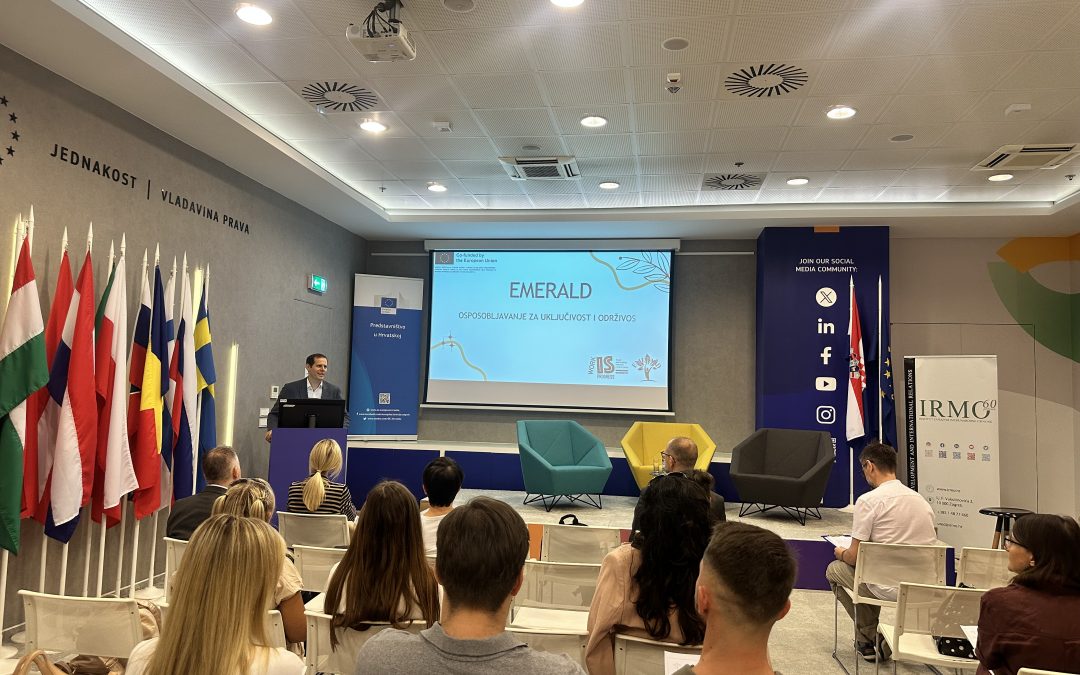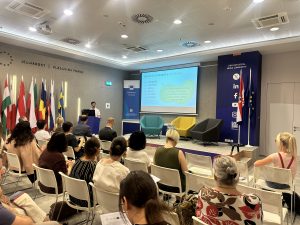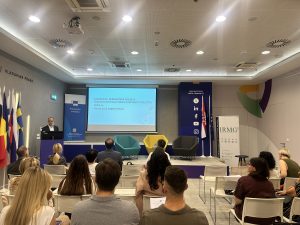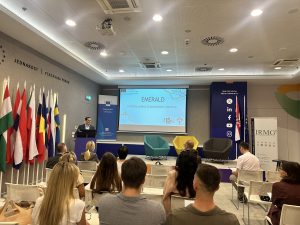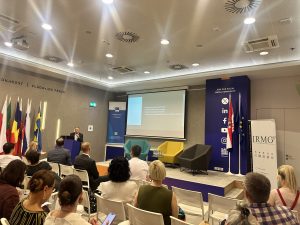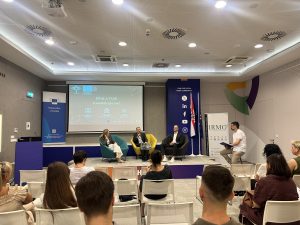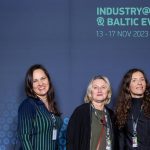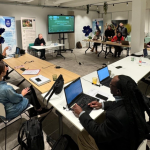“Can Croatia develop conditions in which foreign workers will be perceived not only as a temporary workforce, but also as drivers of new knowledge and perspectives!?”
On Thursday, 3 July 2025, in the premises of the European Commission Representation in Croatia, the presentation of the Erasmus+ project ” Empowering Migrant Workers for a Sustainable Future: Upskilling and Reskilling for Green and Digital Jobs – EMERALD” was held, dedicated to the development of innovative models of education and training for green, digital and socially inclusive jobs. The mentioned project started on April 1, 2025, and the Institute for Development and International Relations and the Ambitio University are partners on this project together with organizations from Italy, Spain, Belgium, Bulgaria and France. The project leader is Soleterre-Strategie di Pace Onlus from Italy.
The opening speech was two-part: the meeting was addressed by Jakša Puljiz, Director of the Institute for Development and International Relations (IRMO) and Alen Stranjik, Director of the Ambitio College – two partner organizations that jointly organized the event. Puljiz pointed out that Croatia, but also the whole of Europe, is currently in a “deep learning process” about the challenges posed by the intense influx of economic migration and the need for their real integration into the labor market and society. Stranjik stressed the importance of cooperation and open dialogue among different stakeholders, in order to jointly develop sustainable models of public-private partnership.
In the continuation of the expert presentations, Ivana Šimek, Assistant Director for the Labor Market of the Croatian Employment Service, covered the topic of the current situation and the main challenges of hiring foreign workers, as well as the role of the CES in this process. She also presented the existing procedures and key obstacles to the inclusion of migrant workers in the labor market.
Hrvoje Butković, scientific advisor from IRMO, presented further perspectives of migration policy and pointed out the possibilities of improving the legislative framework, for example through better use of the Blue Card institute, which in some Member States, such as Germany, contributed to the liberalization of employment of highly qualified workers, as well as through reflection on scoring models inspired by the Canadian approach.
Alen Stranjik additionally presented the EMERALD project itself, emphasizing the need to renew the dialogue between public authorities and the private sector in order to create opportunities for cooperation at the local and national level. As pointed out, the project was conceived as a model that can be more than a European experiment – an opportunity to test in Croatia how the green, digital and social transition can become more than a slogan.
The project is funded by the Erasmus+ programme of the European Union in the maximum grant amount of EUR 862,673.00, and will be implemented for 30 months (1 April 2025 – 30 September 2027).

